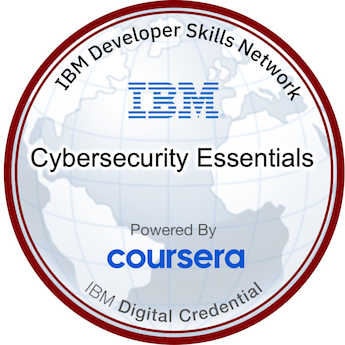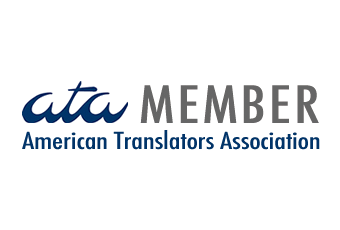How to Conduct Qualitative Interviews in Clinical Research?
Step-by-Step Guide for Qualitative Research Interviews in Clinical Studies: Best Practices and Expert Tips

1. Define clear research objectives
Before conducting any interviews, it is essential to establish clear research objectives. What are you trying to learn from these interviews? Are you exploring patient experiences with a specific treatment or understanding healthcare providers' perspectives on clinical trial protocols? Well-defined objectives will guide the interview process, helping to focus questions, define participant criteria, and ensure the data collected is relevant to your study.
2. Develop a semi-structured interview guide
A semi-structured interview format is often the most effective for qualitative research in clinical settings. This allows for flexibility in the conversation while ensuring that you gather the necessary data. Prepare a set of open-ended questions aligned with your research objectives, but allow room for the conversation to flow naturally. This approach encourages participants to share detailed insights and provides opportunities to explore unexpected findings.
Key tips for creating an interview guide:
- Start with broad, non-threatening questions to build rapport.
- Include probing questions to explore deeper insights.
- Be mindful of how questions are framed—avoid leading or biased questions.
- Use prompts to encourage participants to elaborate on their answers.
- Be mindful of the time: Generally, aim for an interview duration of around 60 minutes – including Informed Consent questions. Ensure your interview guide is realistic in terms of the time available.
3. Recruit interview participants
Recruiting the right participants is a crucial and challenging step in ensuring the quality and relevance of your qualitative interviews. In clinical research, it is important to select individuals who meet the criteria for your study and can provide valuable insights based on their experiences. Whether you are interviewing patients, healthcare professionals, care givers, KOLs, or clinical trial participants, make sure that you:
- Define inclusion and exclusion criteria: Establish clear criteria to ensure participants are representative of your target group.
- Recruit through appropriate channels: Use recruitment methods that are ethical and efficient, whether through healthcare providers, patient groups, or associations.
- Ensure diversity: Include a variety of participants to capture a broad range of perspectives and experiences. This helps create a more comprehensive understanding of the study question.
- Incorporate informed consent: Even though this is typically a part of the ethical process, it is still essential to emphasize that participants understand the study’s purpose and their role within it before they are included.
By recruiting suitable participants, you ensure the data collected is both rich and relevant to the research objectives.
4. Build rapport and foster trust
In clinical research, participants are often sharing sensitive information about their health or experiences. Building rapport is crucial to make them feel comfortable and willing to open up. Start with a brief introduction about yourself, the purpose of the interview, and what you hope to achieve. Use active listening techniques—such as nodding, summarizing, or clarifying statements—to show empathy and encourage further dialogue.
Non-verbal communication, like maintaining eye contact and offering a relaxed posture, also helps establish trust.
5. Listen actively and avoid interrupting
Qualitative interviews are about understanding participants' perspectives, so active listening is key. Let participants speak freely, and resist the urge to interrupt or rush the conversation. Sometimes, silence is powerful; it allows the participant to gather their thoughts and share more in-depth responses. If you do need to iinterrupt, ask open-ended follow-up questions to encourage elaboration.
You may also need to gently guide the conversation or interrupt the participant to stay on track and ensure you don’t run out of time. It is important to do so with tact, making sure the participant doesn’t feel like what they are saying is unimportant. Strong communication skills are crucial here to maintain a respectful and engaged conversation.
6. Use technology to conduct interviews remotely and record participants
Using video conferencing tools like Zoom, Microsoft Teams, or secure platforms tailored for clinical research can help you connect with participants remotely, ensuring that geographical barriers don’t limit your research. Additionally, recording the interview (with the participant’s consent) ensures you capture every detail for accurate transcription and analysis. Be sure to test the technology ahead of time to avoid any technical issues during the interview. Remember to choose secure and compliant platforms if dealing with sensitive healthcare information. While technology offers great convenience, it is important to maintain the personal touch by being present and engaged, even in virtual settings.
For multi-country studies, it’s often advantageous to hire moderators who are native speakers and located in the participant’s country. This helps ensure that cultural nuances, language differences, and regional expressions are accurately understood and respected. Additionally, these moderators are familiar with the local healthcare system and can navigate sensitive topics with awareness of what is appropriate to ask, based on cultural and regulatory guidelines.
7. Manage potential biaises
As a researcher, it is essential to remain neutral and avoid letting personal biases affect the interview process. Be conscious of your tone, facial expressions, and the way you phrase questions. Avoid leading the participant toward specific answers and ensure that you are not unintentionally influencing the conversation. Regularly reflect on your interview technique and consider involving a peer to review your approach.
8. Transcribe and analyze the data thoroughly
After the interview, transcription is the next step before analyzing the data. A verbatim transcription ensures that no important detail is missed and that the analysis is grounded in the participants' exact words. This is essential, especially when analyzing sensitive or nuanced information, such as patient experiences or healthcare provider insights.
Once transcriptions are complete, analyze the data using thematic analysis, identifying patterns and key themes across responses.
Be mindful of contextual information, such as emotional tone or non-verbal cues, which can add depth to the analysis. Also, avoid bias in interpretation and ensure the findings reflect participants' true experiences. Collaboration with colleagues for cross-checking themes can further improve the reliability of your analysis. The goal is to produce actionable insights that can inform clinical decisions or improve patient care.
Key Takeaways
Conducting successful qualitative interviews in clinical research requires a combination of technical expertise, medical knowledge, strong communication skills, and an understanding of cultural and ethical considerations. This process involves not just collecting data, but ensuring it is insightful, reliable, and actionable. With the right approach, qualitative interviews can provide invaluable insights into patient experiences, healthcare provider perspectives, and clinical outcomes. These are essential to make informed decisions, enhance care strategies, and drive improvements in healthcare practices.
As an independent contractor, I support research consultancies and key players at every stage of the qualitative interview process. Whether you need help designing tailored interview guides, recruiting participants, moderating interviews, transcribing data, or providing accurate translations for multi-country studies, I contribute to the success of your research projects. My expertise in clinical settings, combined with a commitment to high-quality, culturally sensitive practices, makes me a trusted partner for your qualitative research needs.
Contact me today to discuss your needs and get a quote

Emi Lecret
Fluent in English and French






